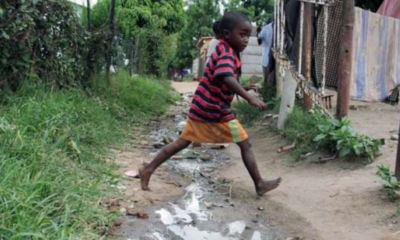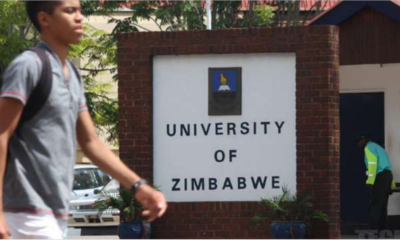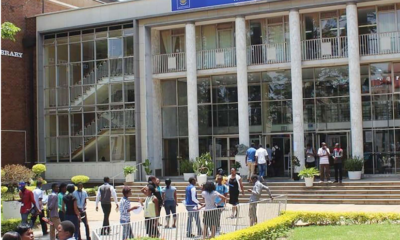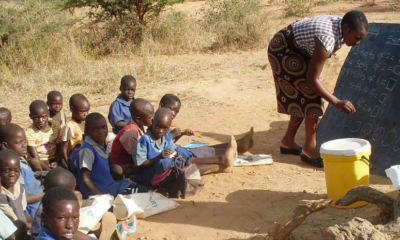TAKAVAFIRA ZHOU
AS much as the government unilaterally opened schools on 7 February 2022, there has not been any learning in schools since then. Teachers had correctly informed the authorities that schools were not ready for a successful opening.
The government took teachers for granted and enunciated that schools should open.
There are five fundamentals that can guarantee the successful opening of schools anywhere and at any time:
– Foremost, the ability of teachers to report for work. At any rate teachers are the most important element in the education system;
– Secondly, the ability of parents to pay fees so that pupils can turn up for learning.
-Thirdly, meaningful engagement between government/Public Service Commission and teacher unions in order to foster industrial harmony and productivity in schools
-Fourthly, intrinsic motivation of teachers so as to entrench meaningful learning and teaching in schools.
-Lastly is the prioritisation of health and safety of teachers, learners and ancillary staff in schools in order to combat the Covid-19 pandemic. There is virtually very little the government has done, and the conglomeration of teachers, pupils and ancillary staff in schools without any testing is dangerous.
Sadly, without interrogating the inherent fundamentals, government has gone to the factory setting, fixated as it is on command and control tactics and opening schools on 7 February.
The ministry of Primary and Secondary Education has gone into overdrive in the wrong direction. The reality of unpreparedness is a public secret for anyone concerned with the truth.
It is clear that both the government and ministry officials are insensitive to the suffering and slavery of teachers and other civil servants, and have lost touch with reality in schools.
To expect a teacher who earns ZW$19 000 to pay school fees for his/her child at ZW$19 000 in some boarding schools where fees have been approved by the government is ludicrous hallucination of the worst order.
That Zimbabwe has some of the best teachers in the region, continent and globally is not in doubt. Yet its teachers are the worst paid.
That is why teachers in Zimbabwe have tested positive to poverty, and have resultantly fallen from grace to grass.
The government has not invested in quality public education, allocating as little as 13% of the total budget to the ministry of Primary and Secondary Education against an African agreement at Dakar to allocate over 22% to education. It is also not eager to engage patriotic Zimbabwean teachers and restore their purchasing power parity pegged at US$540. It is also a fact that teachers are tired of attacks and false accusations by so few for doing so much with so little.
Henceforth, the only remedy to the suffering of teachers is the restoration of the purchasing power parity of their salaries (US$540) as well as a myriad of education sector-specific allowances agreed upon over the past five years, but that have fallen short where it matters most, that is implementation.
Teachers have a right to claim US$540 as this salary was culled without engaging them or their representatives and was therefore callous and a monument of unfair labour practice. Having exhausted all possible means to restore the US$540, tired of government prevarication and firefighting antics, cognisant of government unwillingness to address their plight, teachers have declared their incapacitation to government.
More than 135 000 teachers out of 142 000 gave heed to incapacitation call bringing the education system to a standstill. Some schools have since 7 February been totally closed as both the administration and teachers have failed to travel to their workstations, while in many schools pupils have accessed school premises, but with teachers conspicuous by their absence. Even the 7 000 that is turning up is not teaching.
The government is responding to teachers’ incapacitation by threats, saying “no work, no pay” and teachers have continued with their pay demand slogan “no US$540, no work”.
The minister of Primary and Secondary Education Dr Evelyn Ndlovu had by day four of the incapacitation struggle moved to another level, viz, unlawful blanket suspension of 90% of the teachers on incapacitation action. This illegal suspension failed to emasculate teachers as they continued on the incapacitation modus operandi.
Even the praise singers in the Apex Council who were called to endorse and legitimise a unilateral government offer of an assumed salary increase and non- monetary incentives which fell far short of teachers’ minimum expectations, could not entice teachers back to their stations. That offer is largely a conversion of ZW$12 000 of a teacher’s salary into US$100 and an increase of 20% on the remainder. With the lowest-paid teacher getting ZW$19 000, that offer is paltry and impossible to capacitate and pacify teachers.
Using a 2002 precedent in which the then education permanent secretary Thomson Tsodzo suspended 629 Progressive Teachers’ Union of Zimbabwe-affiliated teachers for engaging on strike, and the courts declared the suspension illegal, teachers have managed to approach the court which has also declared that the minister of Primary and Secondary Education’s suspensions are null and void.
The Public Service Commission has now moved to another level by giving teachers an ultimatum to the effect that any teacher who would not have reported for work or given work to pupils by the 22 February would be deemed to have resigned.
What is worrisome is that instead of engaging all teacher unions over the impasse and for cross-pollination of ideas as opposed to self-pollination, government has invested in command-and-control tactics that have no traction in the education sector.
Any attempt to resolve teachers’ incapacitation through rigid and commandist strategies devoid of educational taxonomy would be futile. Any attempt to resolve the impasse in the education sector must try to establish a balance sheet between the cost of living and school fees on one hand and the teachers’ salary on the other.
An equation without restoration of the purchasing power parity of teachers’ salaries has limited longevity and applicability in the 21st century inflation-ridden Zimbabwean economy. What also worries teachers is that as much as those in power claim that the economy of Zimbabwe has improved tremendously under the new dispensation as compared to the former Mugabe regime, the benefits of that claimed improvement have not filtered to teachers.
Zimbabwean teachers are patriotic, but have suffered enough under the vagaries of starvation. We must reject in toto a system of education that produces rulers over own children by virtue of our inability to afford fees at many schools in Zimbabwe. We are citizens too and our children have a right to best education in Zimbabwe.
Our clarion call is for educational hygiene through restoration of our status, dignity and lustre so that we play a pivotal role for sustainable development of the nation. Any nation that does not respect its teachers is doomed. Teachers are managers of a nation’s best asset, viz, pupils and must be capacitated in order to entrench quality public education that is critical in nurturing skills and fostering sustainable development of communities and the nation at large.
The government therefore has two choices: Either to stand idle by and watch the ongoing crumbling of the educational system worsen, with dire consequences for the youth and future of the country, or intervene by engaging teachers to find a lasting solution to the current crisis.
About the writer: Dr Takavafira M Zhou is president of the Progressive Teachers’ Union of Zimbabwe.





















